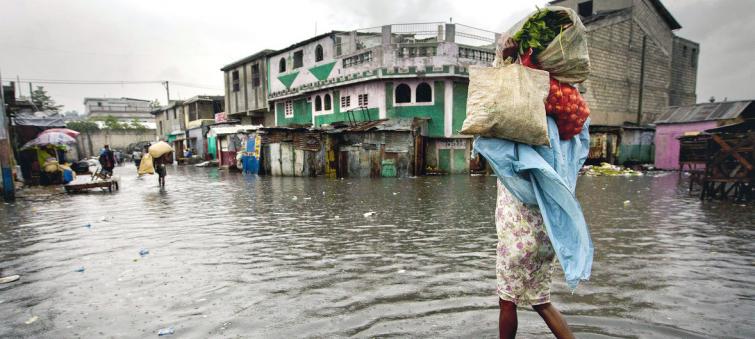
Impact of high debt levels on least developed countries ‘cannot be overstated’, says UN
New York, Apr 14 (IBNS): The impact of high levels of debt on development efforts “cannot be overstated”, the head of the United Nations Development Fund (UNDP) told a Ministerial Breakfast Meeting on least development countries (LDCs) on Saturday.
“While debt financing remains an important source for achieving positive development outcomes in LDCs, the recent trends are a cause for concern” UNDP Administrator Achim Steiner said at the meeting on strengthening resilience to LDCs’ debt vulnerability.
He mentioned that some countries, such as Mozambique, Zimbabwe and Malawi where Cyclone Idai wreaked havoc last month, faced intersecting development threats.
“Cyclone Idai not only demonstrates the devasting effects of a climactic shock, it also amplifies other vulnerabilities that we need to pay close attention to in order to build resilience within countries to maintain their sustainable development”, said Mr. Steiner.
He elaborated on how global stock debts have risen to levels not seen since the 1980s deb crisis and called even “more concerning” the LDCs debt build-up after being written off in the 1990s and early 2000s.
Attributing this to “increased public investments” and “a shift from traditional sources to commercial sources of financing”, Mr. Stiner said: “This has presented new and significant challenges in debt management at the country-level”.
According to the most recent International Monetary Fund (IMF)-World Bank debt sustainability analyses, 40 per cent of LDCs and low-income countries are either in or at high risk of debt distress, while 164 others are at extreme risk.
“The trends are particularly unsettling for Sub-Saharan Africa”, he asserted.
On a positive note, most LDCs have used government borrowing to finance public investments – significantly improving human development outcomes.
As an example, the UNDP chief said that between 1990 and 2017, the human development index of LDCs as a group increased more than twice the global annual average of 0.7 per cent.
Collective efforts needed
“Our collective efforts and continued support” remain “of critical importance” stressed Mr. Stiner, pointing out that not only do debt obligations compete with other public expenditure for resources, but that many economies also lack resilience to economic or environmental shocks.
He highlighted that LDCs need “comprehensive policy and programmatic support” to ensure enhanced debt management, sound macroeconomic policies and development financing to scale.
“UNDP is supporting countries to expand their fiscal space through domestic resource mobilization efforts, amongst other instruments” he said.
“I would like to reaffirm UNDP’s continued strong commitment to work with Governments, international financial institutions, other UN agencies, the private sector and other stakeholders in order to bring development financing to scale in order to ease the debt burden in LDCs”, concluded the UNDP Administrator.
Support Our Journalism
We cannot do without you.. your contribution supports unbiased journalism
IBNS is not driven by any ism- not wokeism, not racism, not skewed secularism, not hyper right-wing or left liberal ideals, nor by any hardline religious beliefs or hyper nationalism. We want to serve you good old objective news, as they are. We do not judge or preach. We let people decide for themselves. We only try to present factual and well-sourced news.







